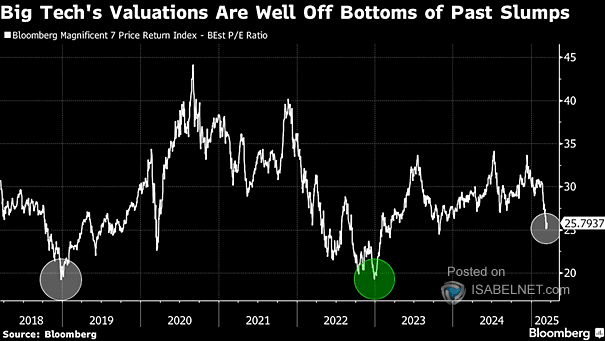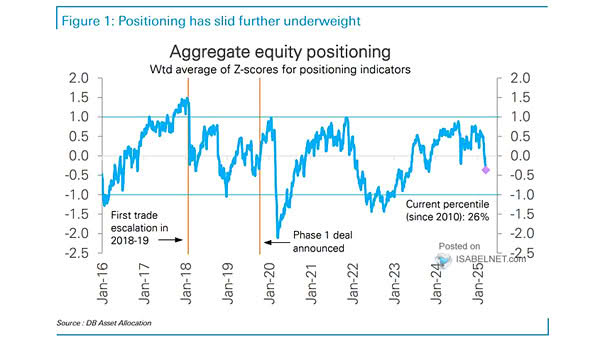Valuation – Bloomberg Magnificent Seven Price Return Index – Best P/E Ratio
Valuation – Bloomberg Magnificent Seven Price Return Index – Best P/E Ratio During the recent market selloff, valuations of major tech companies have plummeted from their previous highs. Many traders believe the downward trend may…


